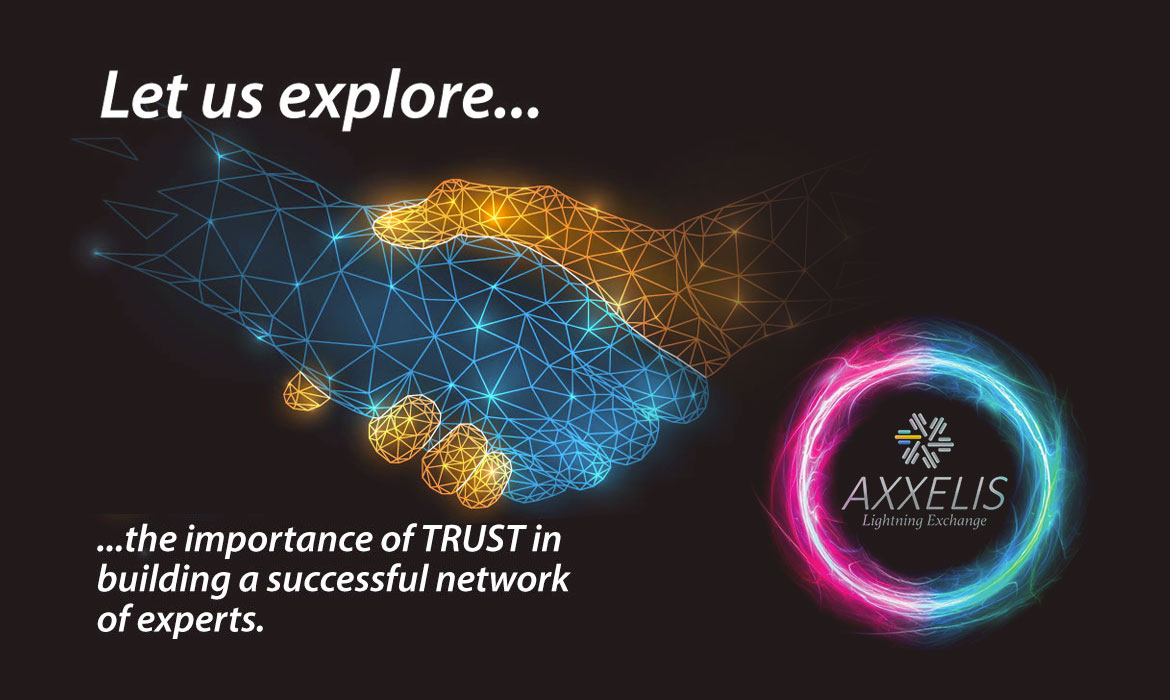
06 Oct 2021 by AXXELIS
TRUST in Expert Networks - What do we know? What can we do?
To show trust is to behave as if the future were certain” – Luhmann
Wednesday 29th September saw our highly anticipated third Axxelis Lightning Exchange event take place. We were delighted to offer an insightful presentation from Professor Charles-Clemens Rüling, Professor of Organization Theory at Grenoble Ecole de Management, France, who shared his expert knowledge in this fascinating topic – TRUST in Expert Networks. What do we know? What can we do?’
The event was facilitated by Odile Hettler, one of our Axxelis members, who is currently working on a doctoral research project with Professor Rüling at Grenoble Ecole de Management.
The 30-minute presentation took us on a journey of discovery enabling us to understand how to gain trust within our expert networks.Within the discussion, the following areas were covered:
- All collaboration requires some degree of TRUST.
- Contemporary organizational arrangements, such as expert networks, require a particularly high degree of trust among members to be successful.
- The trust paradox: building trust is most difficult in situations that require trust the most.
- Trust is a complex phenomenon at the intersection of individual psychology and social expectations; despite several decades of research, our understanding of trust mechanisms is still incomplete (open questions include trust vs. control, translation of forms of trust into each other, translation of individual-level into collective trust).
- What we know about trust (brief overview over the core theoretical “building blocks”): (a) trust is a relational phenomenon; (b) trustworthiness reflects two separate evaluations: rational choice (“encapsulated interest”) and moral/value alignment (“integrity”); (c) trusting has a strong time component: it is informed by past interactions as well as expected future interactions (“shadow of the past”, “shadow of the future”); (d) trust is strongly influenced by the social embeddedness of the trustor and of the trustee; (e) trust can extend from interpersonal to system trust and vice-versa.
- What we know about trust in networks: (a) network trust flows through indirect connections; (b) the flow of trust is conditioned by the relational structure of the network; (c) network trust can take two forms (that rely on distinct mechanisms): spill over of relational trust to indirectly connected actors (“second-hand trust”), and trust between unconnected network members (“prototrust”).
- Network trust depends on five core factors: tie strength, social distance, network closure, governance veracity, and identity authenticity; these factors can guide the design of collaboration networks that favour the emergence of trust.
Following a Q&A session, our delegates then separated into groups to continue this highly interesting discussion.
If you were unable to attend the event, please view the video below to access the presentation and the discussion that followed.
Thank you to our presenter, Professor Charles-Clemens Rüling, for this fascinating presentation, and to all attendees for your time.
We will be announcing our 4th Axxelis Lightning Exchange event for 2021 very soon, and we look forward to welcoming you.





